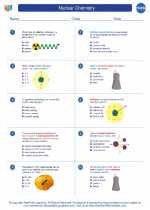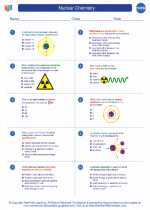Astronomy
Astronomy is the scientific study of celestial objects such as stars, planets, comets, and galaxies, as well as the phenomena that originate outside the Earth's atmosphere. It is one of the oldest sciences, and it has played a key role in shaping our understanding of the universe and our place within it.
Key Concepts in Astronomy
- Celestial Bodies: The objects in the sky that are studied by astronomers, including stars, planets, moons, asteroids, and comets.
- Observable Universe: The portion of the universe that we can observe from Earth, which is limited by the speed of light and the age of the universe.
- Galaxies: Vast systems of stars, gas, and dust held together by gravity, of which the Milky Way is a part.
- Cosmology: The study of the origin, evolution, and eventual fate of the universe.
- Telescopes: Instruments that collect and focus light to enhance the observation of distant objects.
Important Astronomers
Throughout history, numerous astronomers have made significant contributions to the field of astronomy. Some of the most notable astronomers include:
- Nicolaus Copernicus: Proposed the heliocentric model of the solar system, with the Sun at the center and the planets orbiting around it.
- Galileo Galilei: Made groundbreaking observations with the telescope, such as the moons of Jupiter and the phases of Venus, supporting the heliocentric model.
- Isaac Newton: Developed the laws of motion and the law of universal gravitation, providing a mathematical framework for understanding the motion of celestial bodies.
- Carl Sagan: Popularized astronomy and space exploration through his books, television series, and advocacy for scientific skepticism and critical thinking.
- Stephen Hawking: Contributed to our understanding of black holes, the nature of the universe, and the concept of time.
Studying Astronomy
If you're interested in pursuing astronomy as a field of study or simply want to deepen your understanding of the cosmos, here are some tips for studying astronomy:
- Develop a Solid Foundation: Start by learning the basics of physics, mathematics, and scientific reasoning, as these are essential for understanding the principles of astronomy.
- Engage in Observational Astronomy: Use telescopes, binoculars, or even the naked eye to observe the night sky. Familiarize yourself with the constellations, planets, and other celestial objects visible from your location.
- Explore Celestial Phenomena: Study phenomena such as eclipses, meteor showers, and planetary transits to gain a deeper appreciation for the dynamic nature of the universe.
- Stay Updated: Follow the latest discoveries and advancements in astronomy through reputable sources such as scientific journals, space agencies, and astronomy news websites.
- Connect with the Community: Join astronomy clubs, attend stargazing events, and engage in discussions with fellow astronomy enthusiasts to share knowledge and experiences.
Conclusion
Astronomy offers a captivating journey into the vastness of the cosmos, allowing us to explore the mysteries of the universe and our place within it. By studying astronomy, we gain insights into the fundamental laws of nature and the awe-inspiring phenomena that shape the world beyond our planet.
[Astronomy] Related Worksheets and Study Guides:
.◂Chemistry Worksheets and Study Guides High School. Nuclear Chemistry

 Worksheet/Answer key
Worksheet/Answer key
 Worksheet/Answer key
Worksheet/Answer key
